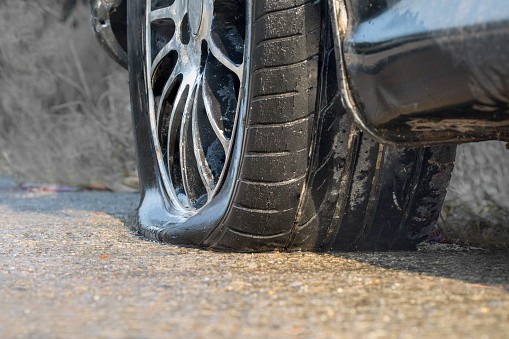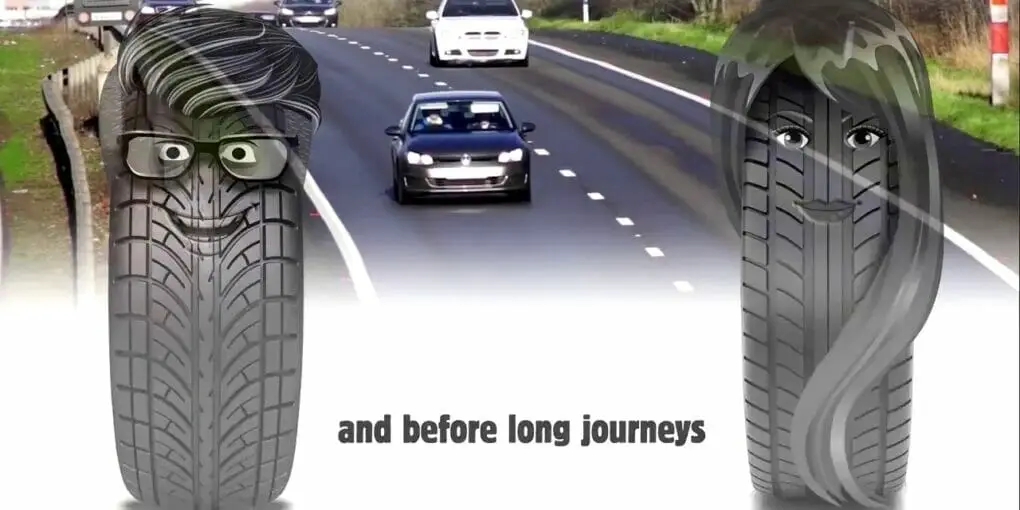Under Inflated Tires Meaning
Under Inflated Tires Meaning, causes problems with the vehicle handling, and can cause decreased fuel economy. It is important to keep your tires properly inflated for both safety and performance reasons. Check your tire pressure at least once a month, and before long trips.
Under-inflated tires can have a major impact on your car’s performance. They can cause decreased fuel economy, increased braking distance, and less grip on the road. This can be especially dangerous in winter weather conditions.
It’s important to check your tire pressure regularly and inflate them to the proper level. You can usually find this information on a sticker inside your driver’s door. If you’re not sure how to properly inflate your tires, consult a professional at your local automotive shop.
Under Inflated Tires Can Cause
Under-inflated tires can cause a number of problems for your vehicle, and can even be dangerous. Here are some things to keep in mind about under-inflated tires:1. Under-inflated tires can cause your vehicle to use more fuel.
2. Under-inflated tires can wear out more quickly than properly inflated ones.3. Under-inflated tires can make it harder to control your vehicle, and can increase the risk of an accident.4. You should check the pressure in your tires regularly, and inflate them to the proper level as needed.
Under Inflated Tyres Meaning in Hindi
Under Inflated Tyres Meaning in HindiWe all know that tyres are a very important part of our cars. They help us move forward and keep us safe on the road.
But did you know that tyres can also be underinflated?Underinflated tyres can cause a number of problems, including decreased fuel efficiency, increased wear and tear, and even decreased safety. That’s why it’s so important to check your tyre pressure regularly and inflate them as needed.
If you’re not sure how to check your tyre pressure or how to inflate them, don’t worry! We’ve got you covered with this quick and easy guide.
Underinflated Meaning
Underinflated tires can be a serious safety hazard. They can cause your car to handle poorly, and can lead to blowouts. Underinflation also decreases fuel economy and causes premature wear on your tires.
It’s important to check your tire pressure regularly, and to keep your tires inflated to the correct level. The best way to do this is to invest in a good quality tire gauge. Many gas stations have air pumps that you can use for free or for a small fee, so there’s no excuse for not having properly inflated tires.
Under Inflated Tires Symptoms
If your vehicle’s tires are underinflated, you may notice one or more of the following symptoms:1. The vehicle “pulls” to one side while driving.2. The steering feels “heavy” or “hard to turn.”
3. The ride is uncomfortable, and the vehicle bounces or “shimmies” over bumps.4. You hear a thumping noise from the tires while driving on smooth roads.
How to Fix under Inflated Tires
If your tires are under inflated, it’s important to fix the problem as soon as possible. Driving on under inflated tires can be dangerous and can cause premature wear. Here’s how to fix under inflated tires:
1. Use a tire pressure gauge to check the pressure of all four tires. If one or more of your tires is significantly lower than the others, that’s likely the cause of your problem.2. Add air to the low tire (or tires) using an air compressor or hand pump until it reaches the recommended pressure level.
You can find this information on the sidewall of your tire or in your vehicle’s owner’s manual.3. Once all four tires are properly inflated, check the pressure again after a few hours to make sure they’re still at the correct level. Adjust as necessary.

Credit: www.baileygreer.com
What Will under Inflated Tires Do?
Underinflated tires can negatively affect a vehicle in several ways. One is by increasing fuel consumption due to increased rolling resistance. Another is by causing premature tire wear, which not only shortens the lifespan of the tire but can also lead to dangerous situation on the road.
Additionally, underinflated tires can negatively impact handling and braking performance.
What Does Underinflated Mean?
Underinflated means having less air than is recommended in the tire. This can cause decreased fuel efficiency, more wear and tear on the tires, and a decrease in handling ability. It is important to check your tire pressure regularly to avoid underinflation.
How Do I Know If My Tires are under Inflated?
Tires are one of the most important parts of your vehicle, and it’s important to make sure they are properly inflated. Under-inflated tires can lead to a number of problems, including decreased fuel efficiency, increased wear and tear, and even blowouts.There are a few different ways to tell if your tires are under-inflated.
First, take a look at the sidewall of the tire. If there is a bulge or sag, that’s an indication that the tire is low on air. Second, use a tire pressure gauge to check the pressure of each tire (you can find these at most gas stations).
The ideal pressure for most passenger vehicles is between 30 and 35 PSI (pounds per square inch). Finally, pay attention to how your vehicle handles on the road. If you feel like it’s “dragging” or not responding as well as it should be, chances are your tires could be low.
If you do have under-inflated tires, don’t worry – it’s an easy fix. Simply add air to the tires until they reach the proper pressure. You can do this at most gas stations or with a portable air compressor.
Just be sure to check your owner’s manual first to see what PSI is recommended for your specific vehicle model.
Which is Worse Over Or under Inflated Tires?
There is no definitive answer to this question as it depends on a number of factors. If you are talking about fuel economy, then under-inflated tires will generally result in worse gas mileage. This is because they create more rolling resistance, which means the engine has to work harder to move the vehicle forward.
This increased effort translates into higher fuel consumption. In terms of tire wear, over-inflated tires tend to wear more on the center of the tread while under-inflated tires will wear more on the edges. So, if you are looking at maximizing the life of your tires, you would want to keep them properly inflated.
There are also safety concerns to consider. Under-inflated tires can lead to blowouts and loss of control, while over-inflated tires can make it difficult to handle bumps and potholes. Ultimately, it is important to check your tire pressure regularly and inflate or deflate accordingly based on the manufacturer’s recommendations.
What happens when your Tyres are under inflated?
Conclusion
A lot of people think that under inflated tires just mean that there’s not enough air in them, but there’s actually a lot more to it than that. Under inflated tires can cause a whole host of problems, from decreased gas mileage to increased wear and tear on your suspension. That’s why it’s important to check your tire pressure regularly and keep an eye out for any signs that your tires might be underinflated.


